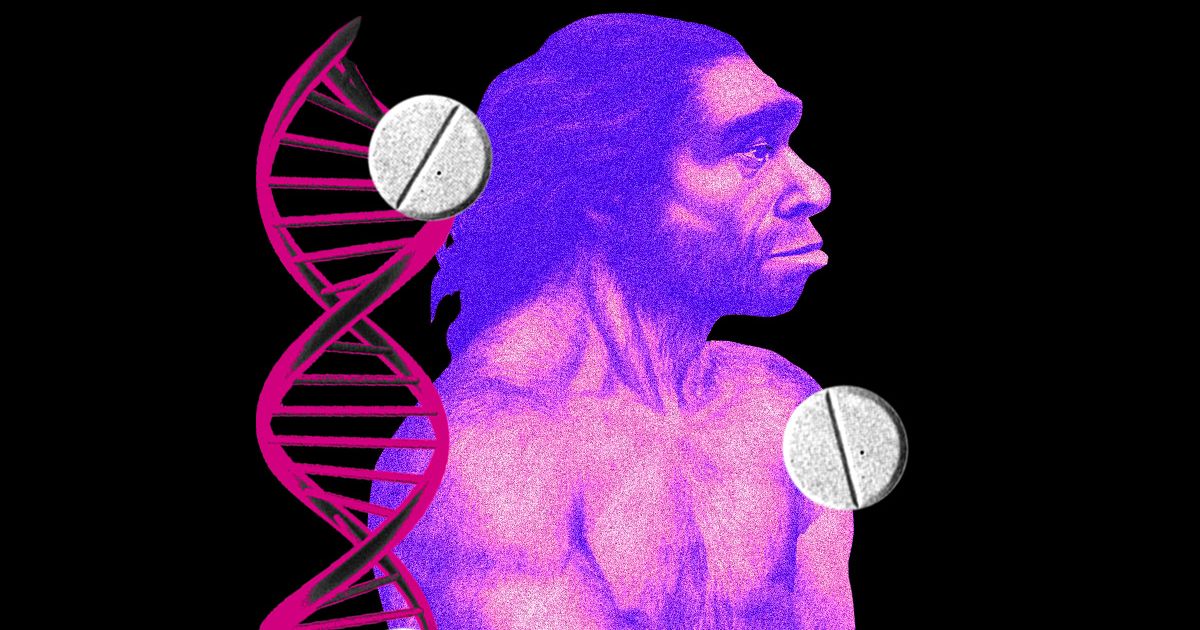Vince
Super Moderator
First, a history lesson: Neanderthals are an extinct subspecies of archaic humans who evolved in Europe and parts of Asia and went extinct about 40,000 years ago. They’re different from Homo sapiens — us, essentially, and relatively new in the evolutionary timeline. Homo Sapiens used to be one of several human and human-like ape species collectively known as hominins, which includes Ardipithecus, Homo erectus, and more. However, evidence shows that Homo sapiens and some of these other species, including Neanderthals, interbred — which perhaps explains why some people today still contain traces of Neanderthal genes.
What’s more — the results of this ancient interbreeding could play a role in how different people process modern medicine today. A new study, published in the Pharmacogenics Journal, noted how common but essential medicines like blood-thinners, ibuprofen, and statins (used to lower cholesterol) aren’t all broken down in quite the same way. The enzymes in our bodies responsible for doing so go back millennia. “This is one case where the admixture with Neanderthals has a direct impact in the clinic. Otherwise therapeutic doses can be toxic for carriers of the Neanderthal gene variant,” said evolutionary geneticist Hugo Zeberg, who led the study.
The finding tracks with recent research that’s shown how we may all have more Neanderthal DNA than we might have previously believed. This DNA influences everything from our sleep patterns, our tendency for nicotine addiction, hair color, and even skin color. So far, these were fairly benign considerations as far as our health goes — but the new study sheds light on how it could be important to learn more about just how much we’ve inherited from these early humans.
The biological differences that individuals with Neanderthal DNA experience has to do with a family of enzymes in the liver called the cytochrome P450 which help metabolize many of the drugs we take. It is the result of coding by a gene called CYP2C9 that can code the cytochrome in 20 different ways: with CYP2C9*2 being a type that is 70% less effective in breaking down drugs than CYP2C9*1. What type we inherit plays a role in how long we can retain drugs in our system and effectively break them down.

 theswaddle.com
theswaddle.com
What’s more — the results of this ancient interbreeding could play a role in how different people process modern medicine today. A new study, published in the Pharmacogenics Journal, noted how common but essential medicines like blood-thinners, ibuprofen, and statins (used to lower cholesterol) aren’t all broken down in quite the same way. The enzymes in our bodies responsible for doing so go back millennia. “This is one case where the admixture with Neanderthals has a direct impact in the clinic. Otherwise therapeutic doses can be toxic for carriers of the Neanderthal gene variant,” said evolutionary geneticist Hugo Zeberg, who led the study.
The finding tracks with recent research that’s shown how we may all have more Neanderthal DNA than we might have previously believed. This DNA influences everything from our sleep patterns, our tendency for nicotine addiction, hair color, and even skin color. So far, these were fairly benign considerations as far as our health goes — but the new study sheds light on how it could be important to learn more about just how much we’ve inherited from these early humans.
The biological differences that individuals with Neanderthal DNA experience has to do with a family of enzymes in the liver called the cytochrome P450 which help metabolize many of the drugs we take. It is the result of coding by a gene called CYP2C9 that can code the cytochrome in 20 different ways: with CYP2C9*2 being a type that is 70% less effective in breaking down drugs than CYP2C9*1. What type we inherit plays a role in how long we can retain drugs in our system and effectively break them down.

People With Neanderthal Genes Process Medicine Differently, Study Finds
“This is one case where the admixture with Neanderthals has a direct impact in the clinic. Otherwise therapeutic doses can be toxic for carriers of the Neanderthal gene variant.”













